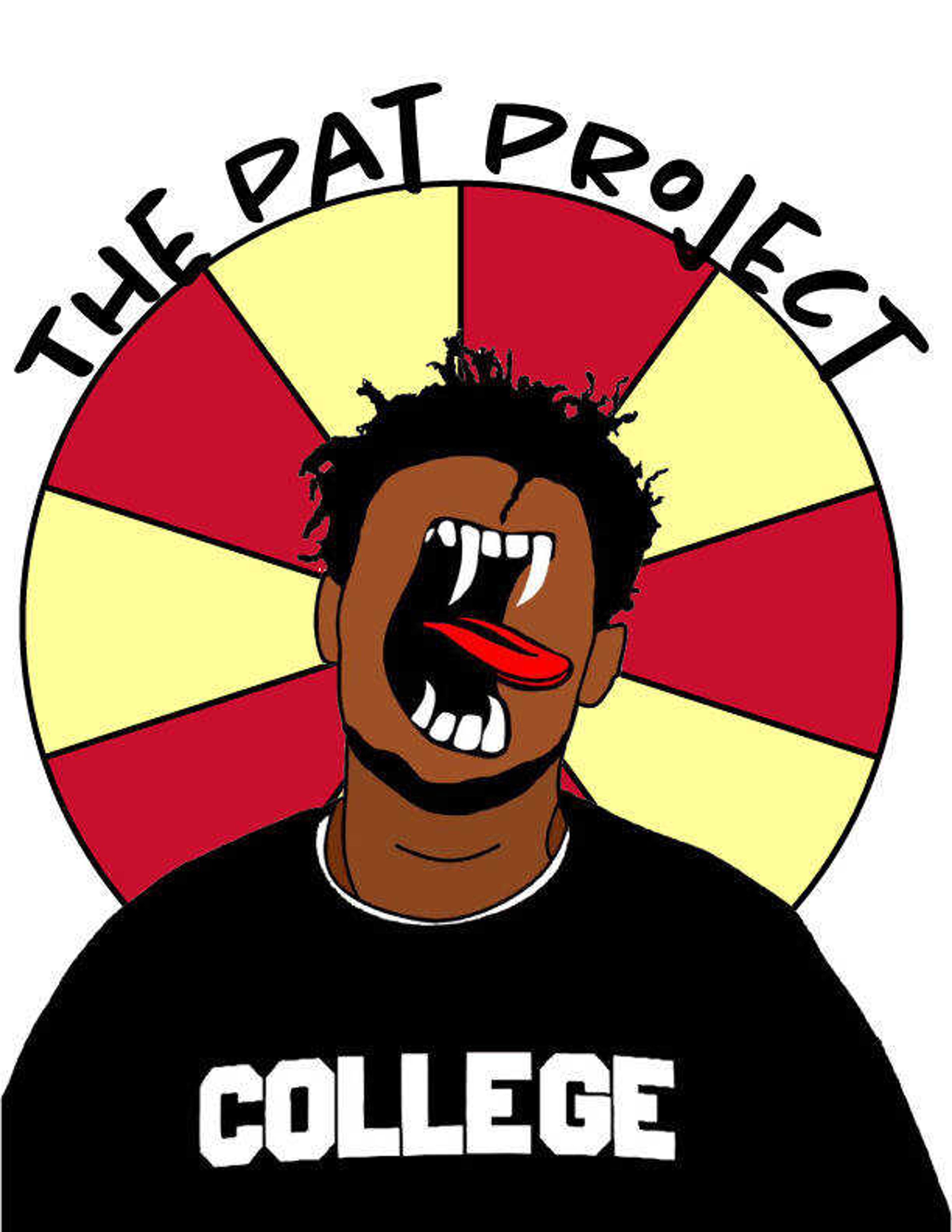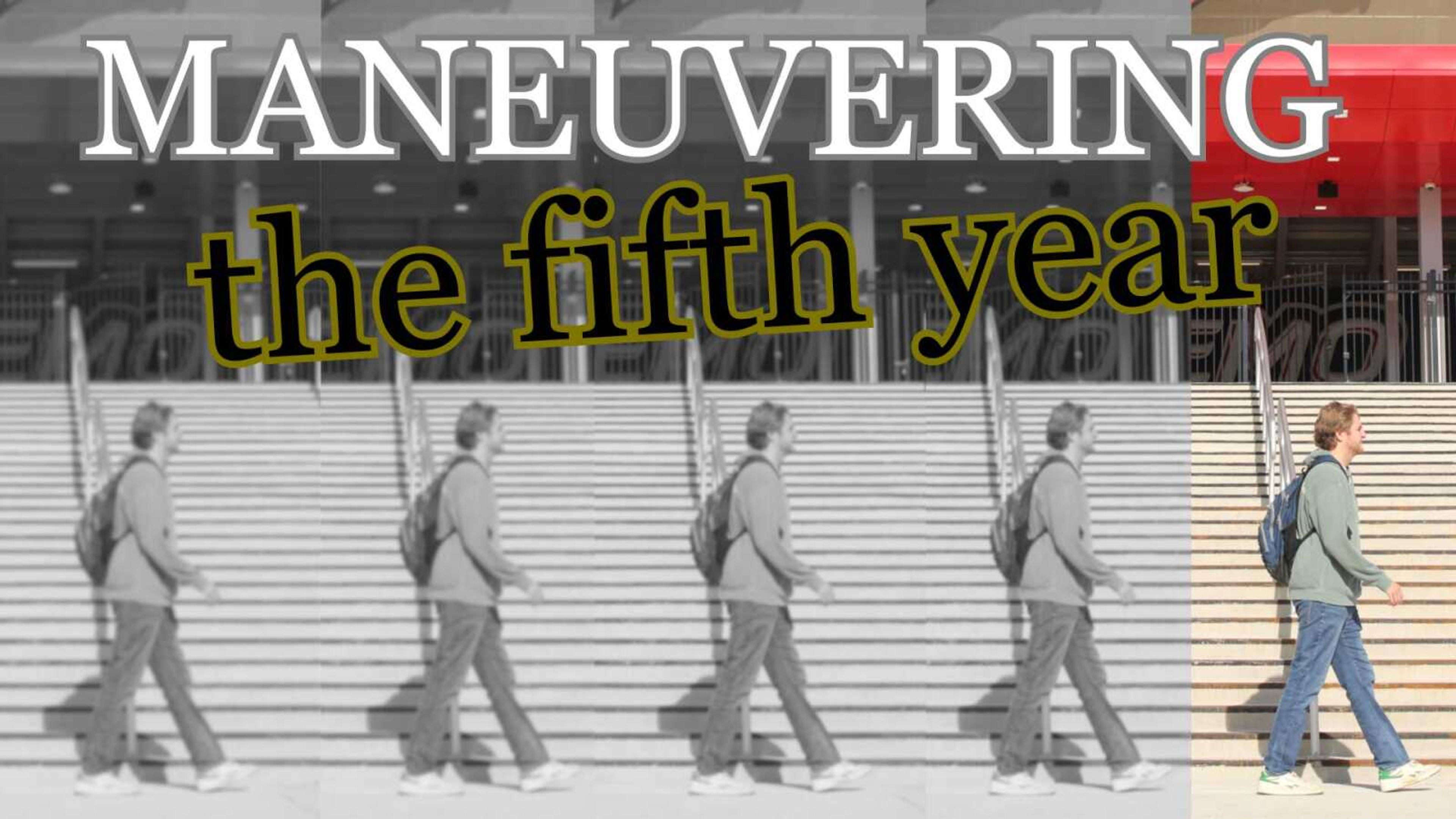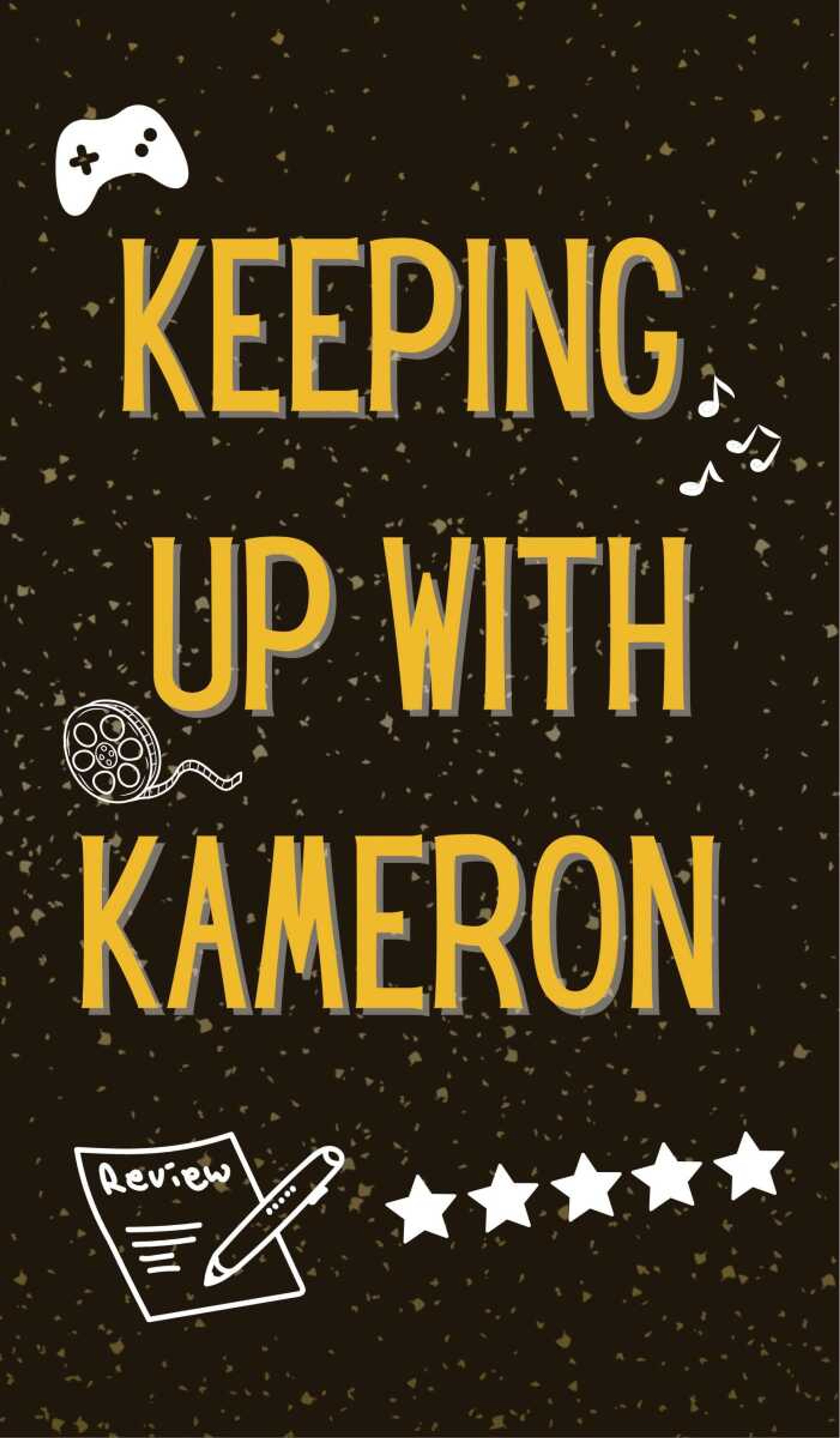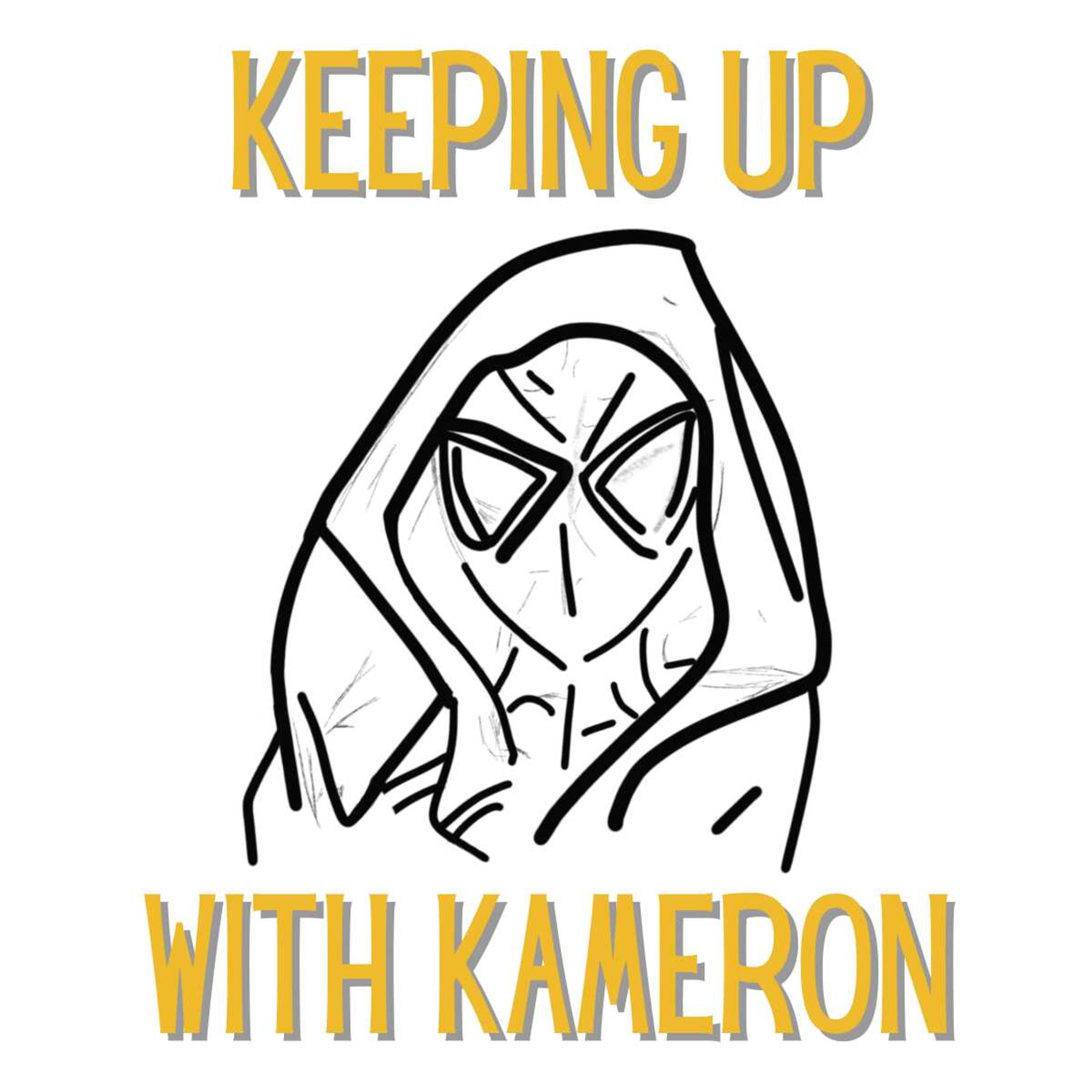Astroworld generates new energy
The young vagabond who introduced us to the dark and sublime emo side of the new-age dirty south rap scene has formulated a new planet in his already expansive solar system, and it’s called “Astroworld.” It makes sense that while some of Travis Scott’s new album contains songs that croon more love letters to his hometown, others operate as agents of festivity, driving the desire to rave and stay up all night. ...
The young vagabond who introduced us to the dark and sublime emo side of the new-age dirty south rap scene has formulated a new planet in his already expansive solar system, and it’s called “Astroworld.”
It makes sense that while some of Travis Scott’s new album contains songs that croon more love letters to his hometown, others operate as agents of festivity, driving the desire to rave and stay up all night. Lyrical nods to his hometown chicken places, the “Astroworld” theme park, Texas legends like Big Tuck, DJ Screw and Sweet Jones, and even the more subtle parts of the culture he comes from always convey his love for his roots. With much thanks due to production and lyrical assists, Scott immerses listeners into a freak-nasty world of fantasy and grown-folks business.
It’s stupendous here, but in the section of the universe it came from, it could very well be a standard work.
Scott announced the title of the project in the early summer of 2016 after the success of that year’s “Birds in the Trap Sing McKnight.” Scott is known to fall off of social media timelines for days or weeks at a time but what he lacks in social contact, he makes up for in musical content.
With a discography that spans further than mixtapes and albums, the artist alternately known as “Laflame” and “Cactus Jack” has musical works dating back beyond 2013. “Astroworld” touches down as his third solo studio album and follow up to his daring 2016 sophomore album. At 17 tracks, it’s certainly his longest project, which only slightly takes away from its ability to be replayed in its entirety.
Sonically, this album borrows from his usual influences. It’s an ode to self-realization, as Scott, already an uncompromising artist, sounds more sure of himself, (and his sound,) than ever. Though it isn’t nearly as audacious or explorative as “Birds,” it’s as meaningful to Scott’s discography as “Rodeo” in the way that his fans have never seen an album of this magnitude from him. It is purely riotous, and though it doesn’t outdo its predecessor in risk taking, “Astroworld” is still a surprisingly bold album. That’s no small feat for Scott who often steers clear of pigeon-holes or occupational labels. To call him a rapper or producer is like calling a man with the skills to build a house a laborer.
He has no problem crossing genres and feels as much at home on a pop record as he does a barely mastered mixtape. The remarkable thing is that he doesn’t change his sound in either environment, whether it be a radio track or mixtape. What stands out about “Astroworld”is how many different sounds are combined to create the collection. “STOP TRYING TO BE GOD” could be anywhere on a Kid Cudi album while “YOSEMITE” draws on the sound of rap newcomer Gunna, who is featured on the song next to Nav, whose verse has been updated twice since the release of the album. “WHO? WHAT!” explores Scott’s ability to seat himself into the sound of other regions, such as the Atlanta trap scene, where he’s always felt at home. “STOP TRYING TO BE GOD” and “SICKO MODE” flaunt his niche for unexpected transitions that can take over the song, while “COFFEE BEAN” offers insight into his relationship and fatherhood.
Travis Scott delivers packages, when you only expect an album. He makes music that is so dense, you can dissect it layer by layer. From the drums and bass, to the synth and pitch, any work manufactured by Scott and his production team is premeditatively structured to please the things on the side of your head that take in and understand sounds and vibrations.
Each song on “Astroworld” offers its own perfect aesthetic. The first time I heard “SICKO MODE” I said, “This just made me want to buy an ’88 box Chevy sitting on 24’s with some 15’s in the trunk.”
If that went over your head, just understand that “SICKO MODE” combines both the diamond-encrusted swagger and gold-plated drip that the entire dirty south- more specifically Texas- is known to accentuate with the fast paced, neck-bumping beats that made Memphis rap legendary.
The song also features the Canadian ambassador to rap Drake. It’s worth noting “Sicko” refers to Drake’s slang term for his hometown teammates, “6ickos,” making this song even more of an ode to some of the most currently iconic regions on the rap map. Speaking of aesthetics, remember when Travis, Uzi, and Migos recorded “Go Off” together for the Fast & Furious soundtrack? “Who? What!” sounds like that on crack. It spins like an action movie score. Close your eyes and feel the music. You can see the bullets flying, mercenaries stealing treasure, Vin Diesel running through walls, and Megan Fox getting kidnapped.
Maybe that’s just me, but this track explodes in your eardrums like a flaming 18-wheeler with propane in the back. It’s positioned 14 out of 17 on the album, between the melodious yet rugged “CAN’T SAY” and the previously released “BUTTERFLY EFFECT.” Travis and Quavo take the beginning of the first verse to question witnesses,
“Heard they talkin’ shit ‘bout I/ Who, what, when and why?”
Next they warn their enemies,
“…keep that same vibe when we show up and collide.”
Lyrically, like most of Scott’s work, even the chorus is reference heavy. “We move like the FOI,” refers to the Fruit of Islam, a religious brotherhood that has never officially been accused of murders or wrongdoing but moves as a unit with discipline and looks scary, as they wear black and don’t talk often.
“Was talkin’ Frenchy’s but she thinkin’ Ocean Prime,” refers to Frenchy’s, a chicken joint in Houston, and Ocean Prime, an award-winning American restaurant chain. Meaning he wants to chill like he always has at the local chicken spot and she’s just dying to eat something fancy, a contrast that seems a little obvious in his own relationship with the young Jenner monster, Kylie.
Though Quavo and Takeoff are featured, Scott fills the gap left by Offset’s absence with a second verse. There’s a few more nods to Houston, strip clubs, expensive clothes, and good drugs that daisy-chain together construct a pretty standard verse for the Texas MC.
Takeoff steps up to the the final verse, rapping medium-paced circles behind a minimal and short verse from Quavo. Altogether, the track stands as a pillar of fire on the album, with production done by 30 Roc and Cardo, two young producers who are both having a big year.
Scott’s explosive and dramatic production has become a staple across his short discography, and “Astroworld” has proven to be no exception. Despite an obvious mastery and manipulation of his own sound, Scott has a knack for collaborative production. Altogether, the album utilizes a total of 31 producers, each adding to an intro, interlude, mix, or sample. The legendary OG producer, Mike Dean, who was the mastermind behind “N****s in Paris” and “Antidote” has two production credits on the album. Scott and Dean are said to have spent countless hours and days working on “Astroworld” going all the way back to early 2016.
Travis isn’t exactly known as the most lyric heavy rapper, but he never pretended to be. He’s known to have extensive writing credits to the likes of Kanye, Cyhi the Prince, and even John Mayer but rarely do they compromise the integrity of the song. Although he isn’t a master wordsmith, that doesn’t exclude him from making music with purpose.
“STOP TRYING TO BE GOD” is a meaningful standout track on the album. Partnered with Philip Bailey’s cushiony voice, Kid Cudi’s hums make people feel safe. It’s like the air around you gets warmer and starts hugging you with every “hmm hmm.” Travis’ somewhat omniscient lyrics create the narrative, a cautionary tale about fandom, following, and seeking to become an idol.
The song interprets the eternal struggle between love and worship, fame and God status. It’s a bit laced in irony, considering Scott’s own quasi-religious fan base, but the tune suits him. When analyzed, the lyrics reveal that it’s alright to not be the ultimate being, and that your God complex can kill you, and harm those closest to you. During the chorus, Cudi and Bailey recite:
“Stop trying to be God/That’s not who you are/Stop trying to be God/That‘s just not your job.”
During the verse, Scott lays down more wisdom telling his students:
“F*** the money never leave your people behind,” and then, “stop trying to play God almighty, always keep your circle tight.”
The caution he emphasizes in maintaining a tight circle reminds us how fickle love and friendship can be, especially when money is involved. Despite Travis and Cudi meshing beautifully to flesh out a masterful beginning, it’s the bridge of the song that draws all the attention.
Stevie Wonder on the harmonica with no hairline?
James Blake doing that thing where he makes me want to cry with his words and then expanding his voice? It’s slightly out of character for Travis Scott’s previous works and that’s what makes this song pop. It stands out, even for an artist that always stands out. It’s rare to see Scott step out of party mode and into teaching his listeners something about how fragile love is. Sure, we can expect the abstract tune involving love lost or found, but occasionally Travis drops a track completely unexpected and off-kilter that reveals that he is a deeply conscientious being.
While the rest of the album features many voices, both ubiquitous and rare, this song has two features that blew my mind through their non-traditional effectiveness. This highlights the effectiveness of hiding the features in the notes. The practice creates a rollercoaster-like effect that pulls you up and down unexpectedly, playing directly into the theme park leitmotif.
While he doesn’t use many complex words, or try to rap tetrahedrons around his competition, he does create work that is extremely reference-heavy,and so covered in double-meanings that simple bars can go over your head if you aren’t sufficiently knowledgeable about 90’s-baby dirty-south culture. Beyond the bars, even the effect of the production can be missed if you aren’t well versed in the influencing content.
“5% TINT” and “CAROUSEL” are sore thumbs in terms of production, mainly because they utilize samples from classic dirty south music. While “CAROUSEL” samples the hollering voices from Dallas legend Big Tuck’s “Not A Stain On Me,” “5% Tint” samples a creeping piano segment from “Cell Therapy,” the hit by Atlanta’s legendary Goodie Mob. Once again, Scott pays his dues to the region that birthed him.
More of his proficiency in iambic advertence is displayed in “WHO? WHAT!” when Scott raps:
“All I know it was Mo Bamba on repeat.”
That’s the second nod on “Astroworld” to the newest Cactus Jack signee, Sheck Wes. His name was mentioned by Drake in “SICKO MODE,” and Travis just name dropped his biggest single, “Mo Bamba.” He also appears sparsely in other spots on the album, punctuating bars with his champion ad-lib, “BITCH!” Random, right? This one line actually speaks volumes about Scott’s cornucopia of reference material.
Scott exposes his listener to historical, musical, and regional allusions that may seem apparent or incomprehensible because of their origin or complexity over a few bars. Whether the reference is understood or not is on the listener, but the simple existence of it in the music adds an undeniable depth. Therein lies the importance of mentioning Sheck Wes and Mo Bamba, as meaningless as it may seem on the surface.
Fatherhood and being a husband are his latest inspirations, and the impact is notable through the album. “Coffee Bean” unveils Travis Scott, the father and husband, to us all as he raps about his relationship with Kylie Jenner being rough, and in the public eye. His word choice on the record expresses the tumult inside of him, while the soothing instrumental contrasts that feeling with an upbeat boom-bap flavor that Scott isn’t known for, but was no doubt influenced by the work of Kanye West.
These types of references show his listeners that Jacques (Travis’ given name) will always be Scott and vice versa. He stays true, not only to himself, but to his fanbase. Selling out isn’t his style, and it seems like it never will be.
Travis Scott makes music for Travis Scott fans (and Stans), and because of that discipline his work speaks for itself, and his fans vouch for that through almost everything (“Huncho Jack” is the only exception to that rule.) Scott's artistry doesn’t beg to be loved, and usually refuses to do so, thanks to his commitment to never compromising his sound.
“Astroworld” lives and breathes in the Travis Scott discography as bold, yet not risky. It’s not head-first but more of a flat belly flop, that forces the listening pool to take it in its entirety, rather than one piece at a time.
There isn’t an ounce of unsure action in the entire work. Seeming more realized than ever, Travis approaches the project with a charisma we haven’t had the opportunity to witness thus far. Where “Rodeo” sounded more like a proclamation of free willed fun and fantasy, and “Birds” was an exploration of melody and possibility. “Astroworld” is an amalgamation of both- dressed as an alternate-reality filled with mosh-pits, cotton candy, sweet melodies, and designer drugs. It’s nowhere near as murky and undeveloped as “Owl Pharaoh” and doesn’t draw on the same medieval ghoulish energy as “Days Before Rodeo.”
“Astroworld” is a 17-track long journey that seeks life-changing highs on songs like “CAROUSEL” and explores self-deprecative lows across tracks such as “COFFEE BEAN.”
While I cannot confirm classic status, nor can I foresee this albums replay-ability in five years- what I do know is when Scott immerses himself in album mode, especially for a long amount of time there is rarely a poor payoff..
It’s unclear whether he has a connection to other worldly beings or soul rapturing leviathans, and that alone makes it hard to judge this album as fantastic or just another great work. No matter where it came from (Houston or Heaven) it’s obvious that Scott has ascended into the artist he wanted to be when he “chose to jump off his mama porch and lead the stampede of lost souls,” as declared by T.I. on “Pornography.”
He moves at his own pace, he partners with his idols and rivals, and he creates like a child with the ability of an adult genius. Time will tell for sure, but it’s entirely plausible that this may be Scott’s most visual and understood project to date. So, you can cross your little arms and shake your little head all you want, but the fact is that his independent motion, collaborative ability and creative chops speak definitively to his capability as an artist. One who paints vivid pictures that come to life and dance off the canvas and into your ear, grooving on your brainwaves.








